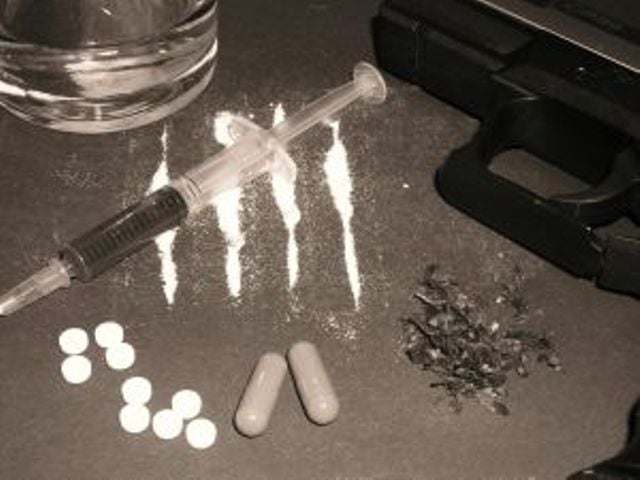
The Freedom of Information requests to police forces in England, Wales and Northern Island showed that in 2016, 71 per cent of forces arrested children under the age of 16 on suspicion of supplying crack, heroin or cocaine. When all types of Class A substances were considered, the proportion of forces arresting under-16s for hard-drug dealing last year rose to 86 per cent – 30 out of the 35 forces who supplied useable information.
Further investigations showed that children as young as eight years old are being recruited into a world of drug dealing where gangs use torture as a means of showing authority. They also use knives, tasers, boiling hot water, and acid as weapons.
Pushed to the limit: Women and children using heroin
The Independent has been told of London schoolchildren being sent to deal from crackhouses as far away as Scotland, with the girls sometimes being raped and “owned” by male gang members. By the age of 14, some child drug dealers are “already seasoned. [They have] done lots of things, sold lots of drugs and been in lots of traumatising situations”.
“My concern is that this is the next child exploitation scandal,” said one adult working with gangs.
The revelation came after a report by MPs raised fears about drug gangs exploiting minors who go missing from home or care, and called for such children to be treated as victims.
The All-Party Parliamentary Group on Runaway and Missing Children and Adults warned: “Patterns of grooming of children for criminal exploitation are very similar to those of sexual exploitation. In the past, child sexual exploitation was often perceived amongst professionals as the victim’s fault, or due to their risky behaviour.
“Vulnerable young people who are trafficked and exploited by gangs to distribute drugs are still too often perceived to have ‘made a choice’ and are therefore criminalised rather than safeguarded and recognised as victims of the gangs who control them.
“Prevention of children being groomed and exploited in this context should be seen as the top priority for local and national decision makers.”
The information supplied by police to The Independent suggests that whereas before the substances peddled by child pushers might have been “soft” drugs like cannabis, violent criminal gangs are now luring younger and younger children into dealing harder and harder drugs. 22 forces – 63 per cent – arrested Class A dealers aged 14 or even younger, and eight – nearly one in four – detained 13-year-olds on suspicion.
The youngest child involved was a 12-year-old, arrested for possession of Class A drugs with intent to supply. Outside the Class A category, Humberside Police reported that they had received an anonymous tip-off that a nine-year-old girl was supplying cannabis.
“It starts as low as eight,” said Caroline Shearer, of the Clacton, Essex-based charity Only Cowards Carry, “Moving drugs on the street, a little packet from outside the fast food restaurant to drop off at the budget hotel.
Two alleged drug suppliers caught selling to students
“And if the child loses that package, he gets beaten for losing it. And if he gets caught in another gang’s area, they beat him for being on their turf, and take the package. Then the child goes back to his gang and gets beaten up for getting beaten up.
“There’s no decency, no scruples, no mercy. It’s an evil, vicious circle.”
The Independent spoke to James, 47, a former gang member who now works to stop young people making the same mistakes he did, he had just been trying to help a 16-year-old girl.
“She’s been raped,” he said. “She’s got links to four gangs. She’s ‘owned’ by a boy from each gang – as in, ‘I’m a senior gang member, I like a girl, I’ve claimed her, she’s mine’.
“The girls submit to that. They may be used like a mattress, but protection, and all those things that are offered by the gang, they prefer that to their own value and self-worth.
“It’s horrific, but they can’t see it.”
The 16-year-old girl, he said, had been “sent all over the place”.
James also added: “They found her in Scotland once. It’s quite a normal thing for young people. We have got quite a few minors who have gone missing for days. They send them up to crack houses. Sometimes the girls are up there for just sexual reasons, but 99.9 per cent of the time, its selling drugs.”
Some gangs seek children without a criminal record. Others, the NCA noted in its November county lines report, targeted white British children “because groups believe they are less likely to be targeted by law enforcement”.
“Instances of firearms being kept visible at cuckooed addresses to intimidate victims were reported,” said the NCA, “As well as drugs users being seriously assaulted or even tortured as a show of strength to other users and gangs.”
County lines drugs markets are now operating 24 hours a day, the NCA said. “Returns from 2016 indicate a considerable increase in law enforcement awareness of the use of children … 80 per cent of areas saw the exploitation of children by gangs.”
Karachi and Sukkur are Sindh’s hub of narcotics: ANF
Possible glimpses of this appeared in the FoI returns: the 14-year-old boy arrested by British Transport Police in Eastbourne, East Sussex, in connection with 15 wraps of cocaine and a brown powder thought to be heroin; the 15-year-old girl arrested in Bedford in November on suspicion of supplying cocaine, who was “processed on behalf of another force”.
Helen Rosenthal, the manager of Catch22’s Dawes Unit is increasingly worried, “My concern is that this is the next child exploitation scandal.”
Just how easily some children can be groomed or exploited was revealed by her colleague Jamal Forrest, 34, originally from the inner-city area of Winson Green, Birmingham. Recruited himself at the age of 15, he soon became one of the recruiters.
“It’s like a recruitment agency,” he admits. “When you look at these young people, you see business opportunities.
“They are attracted to trinkets. You can give them money, alcohol…”
And you only need to recruit one child yourself: “Once you have got that one young person around you, because of their social circles, they can do the recruiting for you. It’s a domino effect.”
1732603002-0/lamar-(4)1732603002-0-405x300.webp)
1720420084-0/brad-pitt-(2)1720420084-0-165x106.webp)
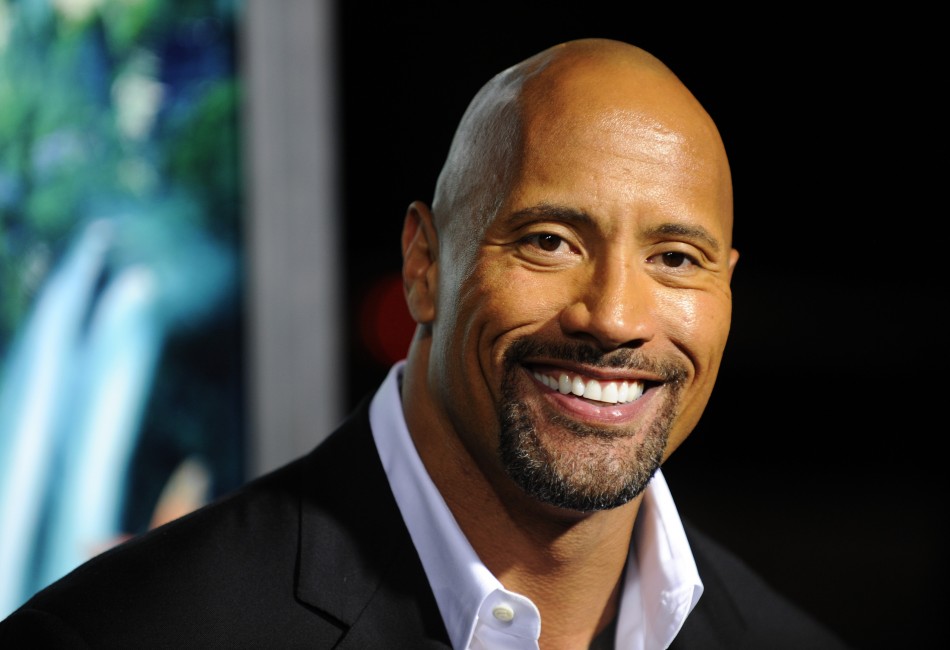


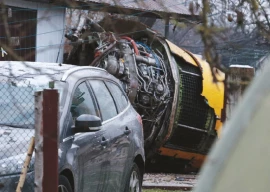



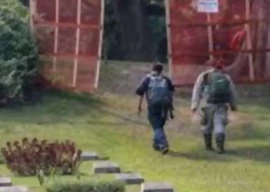
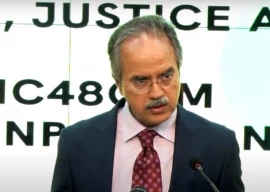






COMMENTS (1)
Comments are moderated and generally will be posted if they are on-topic and not abusive.
For more information, please see our Comments FAQ